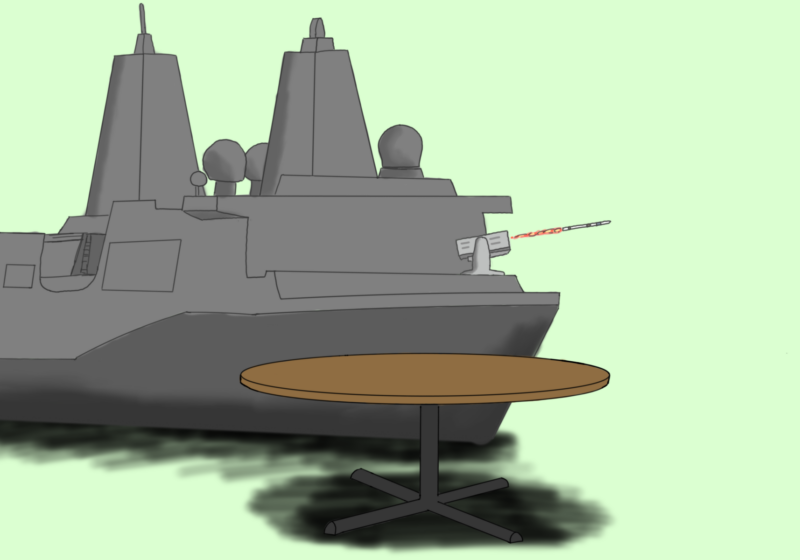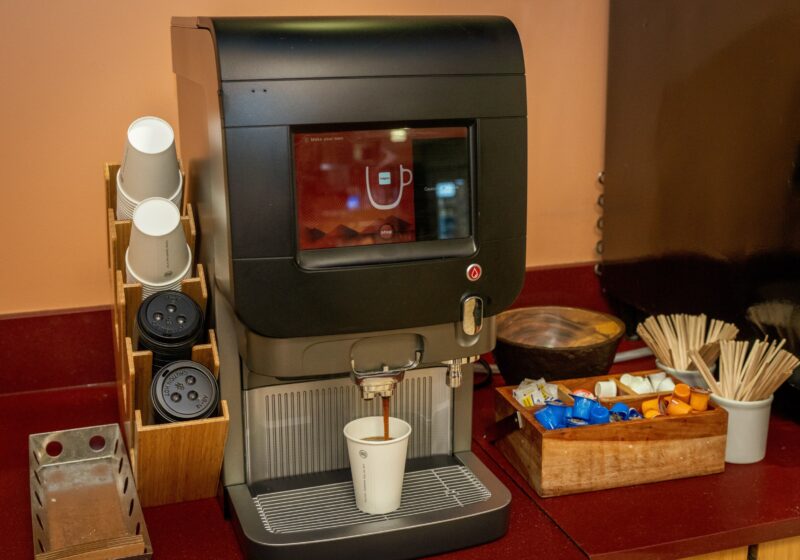He took his bike and rode from Oregon to Maine in three months. His wife and children followed him in a camper, and they would reunite at night at various campgrounds.
?I rode for 100 miles a day, for 36 days and 3,500 miles,? Provost Charles Phelps said. ?The hardest thing about the ride was stopping.?
His personal experiences have shaped him and clearly account for the passion for his job and the risks he has taken at UR with the controversial implementation of the Renaissance Plan. The words ?active? and ?risk taker? embody his personality.
UR students don?t know much about Phelps except that he is an important figure on campus.
He has been a prominent figure on campus since 1984 and has successfully implemented the academically prestigious Renaissance Plan and a biomedical engineering program during the seven years that he has been provost.
?Everything I have done in my life comes back in this job,? Phelps said.
As provost, Phelps is the chief academic officer and is responsible for all the teaching and research at UR. All the deans and department chairs report to him. Phelps also chaired the committee that selected Jackson as president.
?[He] is the academic right arm of the President. We work extraordinarily closely, and probably meet face to face at least daily, communicating by e-mail an additional 5-10 times a day,? Jackson said.
Phelps is the common thread that links all the different programs and schools, both graduate and undergraduate, that fall under the expansive UR umbrella.
With five to six meetings on an average day with various academic leaders, his schedule is always packed.
?We?re a very decentralized university and when you see things that fall between the cracks, it is my job to fill those cracks,? Phelps said.
?I?ve got be able to know a little bit of everything of every part of the university,? he said.
Background
Born in Manhattan, Phelps moved to Denver when he was two years old. Later, Phelps attended Claremont University in Pomona, California. He then went on to business school at the University of Chicago, where he earned a Masters degree in Business Administration, specializing in health care.
He lives with his wife Dale King, and has two children.
His first meeting with his wife came about in an interesting way.
?I pulled a dirty trick on my twin brother,? he said. His twin brother was dating King and, on the insistence of their mutual college friends, Phelps decided to ask her out.
?I did not lie to her, I told her I was Phelps,? he said.
They were married five years later. His twin brother forgave him only after Phelps and King set him up on a blind date with the woman who eventually became his wife.
Phelps said that having a twin brother is sometimes spooky because the two of them think alike.
Another man who thinks similarly to Phelps is Jackson.
?He has analytical capabilities that are extraordinary, and he and I tend to think enough alike ? but from different perspectives ? that we are able to sharpen each other?s thinking,? Jackson said.
Professional start
When Phelps first came to UR, he worked as the Director of the Public Policy Program. Later he became the Department Chair of the Medical Center in Community and Preventive Medicine. His major interests lie in economics and healthcare. In his 17 years in the city of Rochester, Phelps has become accustomed to a comfortable lifestyle and plans to stay.
?My roots are where I am now, I have no longing to go back to Denver,? Phelps said. ?The quality of life is so much better [in Rochester], there is less traffic, less congestion, the city is so available.?
His vision for UR correlates with his vision of the city of Rochester. The goal of the Renaissance Plan is to return UR to its ?roots? as a small, national and inclusive university. ?All that remains now is consolidating and fine tuning the Renaissance Plan and closely monitoring the admissions policy,? Phelps said.
Now that the institution of the plan has neared completion, Phelps now hopes to bring the similar energy and focus in the Medical Center. Other than that, Phelps is trying to figure a way to widely implement and improve the use of digital communication. Currently, UR is dependent on extremely expensive paper journals, which cost approximately $15,000 each, the provost said. This way pre-prints would readily available to faculty and staff.
Those who work closely with the provost have nothing but admiration for him. ?He?s really a great person to work with ? he is very empowering ? he gives me a task and then never asks whether it is done or in progress,? Executive Assistant to the Provost Barbara Granger said. ?Its good to work with someone whom you can call a friend.?
Hobbies and interests
It may be easy to conclude that a man as busy as Phelps does not have time to do anything outside his time consuming job. However, it became apparent the he was a man with many ambitions and interests to keep himself entertained. Canoeing, photography, archery, astronomy and bike riding are some of his favorite past times.
At the present time, Phelps is building his third canoe. After building them he spends time in the Adirondacks canoeing and working on his photography. His most recent canoe-in-progress was sold at an auction over UR?s Sesquicentennial celebration last October.
Now at age of 57 he can no longer perform such vigorous exercise because of some growing physical problems in his knees, neck and lower back.
?I have over two cervical discs that are an annoyance. It has taken away from my physical activity,? Phelps said. He added that he did intended to stay intellectually active by exploring into the future of digital communication, electronic publishing and staying involved in education. ?When
I first met him, I knew that he was a leading economist of health care, and his professional profile would give him credibility in his job as provost,? said Thomas LeBlanc, UR Dean of the Faculty.
?Since that time I have learned that he is also very interesting as a person. He builds canoes and clocks, reads widely, and has something interesting to say about many important problems (such as the problems associated with electronic publishing),? he continued. Apparently, Phelps has been influential in wanting to switch to electronic publishing for keeping journals and other publications instead of storing expensive paper copies.
Is there anything this man cannot do? ?I wish there were more hours in the day for him to attend functions on campus with the students but his meeting schedule and teaching schedule does not allow it,? Granger said.
It?s a part of life, too many things to do in too little of a time.




